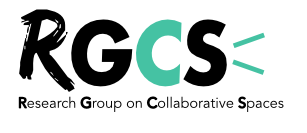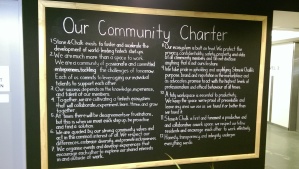The collaborative economy is at the heart of contemporary capitalism. It relies massively on digital infrastructures and their necessary standards.
For some managers, it is the ideal setting for the experimentation of disruptive business models and global strategies. It enables rapid breakthrough for some young startups which become standards themselves in amazing time spans.
Beyond the sphere of management, global digital infrastructures enable disruptive political innovations for communities and social movements. The how and the why of these new kinds of social and political breakthroughs is the subject of numerous studies, e.g. in the field of management and organization studies, sociology, media studies or economics. More than ever, activism has become a connected exercise.
But beyond such emergent attempts, it seems that some major political ideas are tested at a global scale. Friedrich Hayek’s invitation to introduce multiple and competing currencies in the same national context have started. Numerous virtual … Read more

